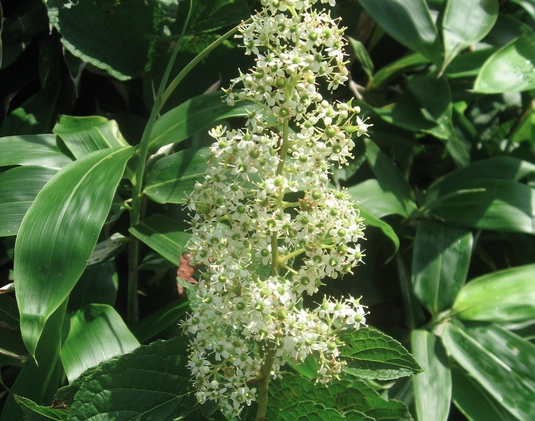A Cure For Obesity May Be Found In Chinese Medicine: What's Inside The Thunder God Vine?

For years, scientists have been searching for a way to effectively treat obesity using only a pill, and they’ve found some promising routes along the way (see here and here). Now, a new study suggests our solution to the obesity problem has been hiding in traditional Chinese medicine all along. Researchers looking into the powers of the thunder god vine (Tripterygium wilfordii) found that its extract could lower appetite and reduce body weight by as much as 45 percent in mice.
How was the plant so effective at reducing appetite? In its extract, researchers obtained high levels of the weight-loss compound celastrol, which amplifies the effects of the “satiety hormone” leptin. This hormone notifies the body when it’s time to stop eating, however, its effects are only as strong as the body’s sensitivity to it. People who aren’t sensitive to it tend to grow obese as their bodies can’t tell them when to stop eating.
“During the last two decades, there has been an enormous amount of effort to treat obesity by breaking down leptin resistance, but these efforts have failed,” said senior author Umut Ozcan, an endocrinologist at Boston Children’s Hospital and Harvard Medical School, in a statement. “The message from this study is that there is still hope in making leptin work, and there is still hope for treating obesity.”
For the study, researchers gave the extracted celastrol to obese mice over the course of three weeks. They found that after only a week, mice treated with the extract were eating 80 percent less food than the obese mice designated as controls. Within three weeks, mice treated with celastrol had lost 45 percent of their body weight — all of which came from their bodies’ own fat stores.
The researchers noted the effects were more profound than those of bariatric surgery, such as gastric bypass. However, they were only comparable; a person who undergoes bariatric surgery tends to lose between 30 and 50 percent of their weight over the first six months. After a year, weight loss rises to 77 percent. It’s unclear how effective celastrol would be during this time frame because research hasn’t been conducted on humans just yet.
Ozcan said future studies would determine whether celastrol is just as effective in humans as it is on mice. In the meantime, he emphasized caution. "Celastrol is found in the roots of the thunder god vine in small amounts, but the plant's roots and flowers have many other compounds," he says. "As a result, it could be dangerous for humans to consume thunder god vine extracts to lose weight."
Source: Liu J, Lee J, Hernandez M, Mazitschek R, Ozan U. Treatment of Obesity With Celastrol. Cell. 2015.
Published by Medicaldaily.com



























